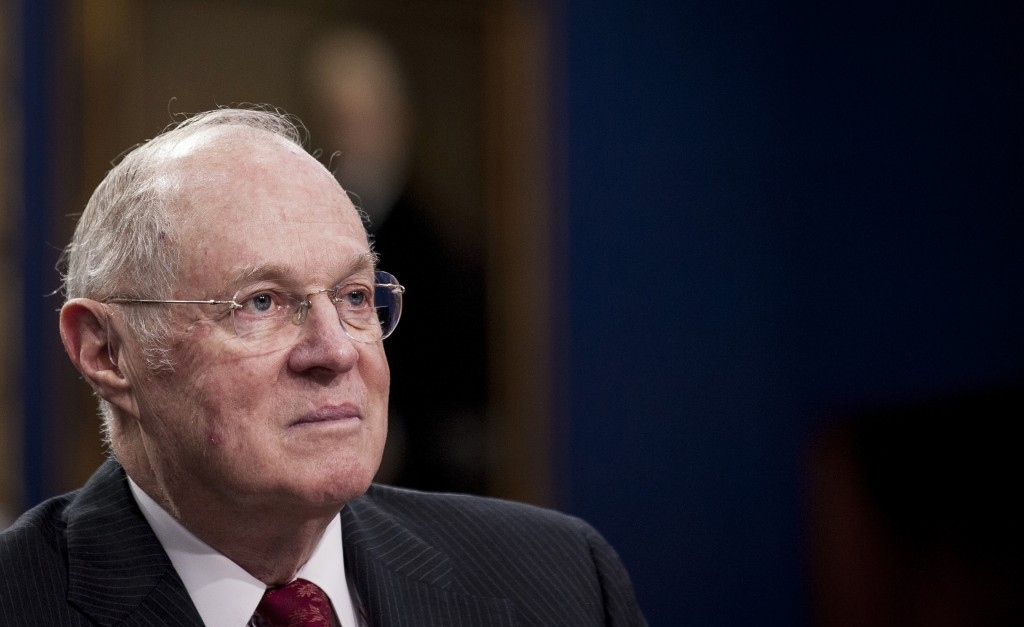Kennedy retires, what now?
June 28, 2018 | Expert Insights

US Supreme Court Justice Anthony Kennedy has announced that he would be retiring from the bench in July 2018. US President Donald Trump would be able to nominate the next justice to replace him thus securing a firmly conservative bench at the Supreme Court.
Background
The Supreme Court of the United States is the highest federal court of the United States. Established pursuant to Article Three of the United States Constitution in 1789, it has ultimate (and largely discretionary) appellate jurisdiction over all federal courts and state court cases involving issues of federal law plus original jurisdiction over a small range of cases. In the legal system of the United States, the Supreme Court is generally the final interpreter of federal law including the United States Constitution, but it may act only within the context of a case in which it has jurisdiction.
The Court normally consists of the Chief Justice of the United States and eight associate justices who are nominated by the President and confirmed by the Senate. Once appointed, justices have lifetime tenure unless they resign, retire, or are removed after impeachment.
The nomination of Merrick Garland
Merrick Brian Garland is the Chief United States Circuit Judge of the United States Court of Appeals for the District of Columbia Circuit. On March 16, 2016, President Barack Obama nominated Garland to serve as an Associate Justice of the Supreme Court. However, the Senate with the Republican majority refused to hold a hearing. Senate Majority Leader Mitch McConnell noted that this was a vacancy that ought to be filled by the next US President and it was wrong to hold confirmation hearings during an election year. Ultimately, after Donald Trump was elected as the President, Garland’s nomination was dropped. President Trump instead nominated conservative Neil Gorsuch in his place. This was widely seen as a controversial move by the Republicans for having refused to hold hearings.
Justice Kennedy
Anthony McLeod Kennedy is the senior Associate Justice of the Supreme Court of the United States. President Ronald Reagan nominated Kennedy to the Supreme Court in 1987, and Kennedy was sworn in on February 18, 1988.
Analysis
Justice Kennedy, seen as a moderate voice in the Supreme Court has often been considered as the key swing vote in many landmark cases regarding abortion and gay rights. On June 2018, he announced that he would be retiring. He addressed his resignation letter to US President Donald Trump and stated, “For a member of the legal profession it is the highest of honors to serve on this Court. Please permit me by this letter to express my profound gratitude for having had the privilege to seek in each case how best to know, interpret, and defend the Constitution and the laws that must always conform to its mandates and promises.” He is 81 years old.
With Justice Kennedy’s retirement official, President Donald Trump has become one of the most consequential Presidents in US history. He now has the power to nominate a conservative voice in the US Supreme Court and thus could shape progress and development of the US society for the next 40 years at least. If he is able to secure and ensure the nomination of another conservative judge, it would become a definitive majority in the US Supreme Court.
Here are some issues that are at stake as a result of this development:
Abortion rights
The US supreme court legalized abortion in 1973. Now, 45 years later, activists say the departure of the court’s moderate, Justice Anthony Kennedy, represents the most direct threat to reproductive freedom since abortion was legalized. “Today, Justice Kennedy announced his retirement, and because President Trump will nominate the next supreme court justice, a woman’s constitutional right to access legal abortion is in dire, immediate danger – along with the fundamental rights of all Americans,” said Ilyse Hogue, president of NARAL Pro-Choice America. It should be noted that the current Vice President Mike Pence is an avowed critic of abortion and has promised to delegitimize it in the near future.
LGBTQ rights
Kennedy was typically the swing vote or one of the swing votes in the Court’s 5-4 or 6-3 decisions for LGBTQ rights. Even though gay marriage is legal in the US presently, there could be other cases pertaining to LGBTQ rights that would come to the Supreme Court for judgment. For instance, questions regarding if religious rights allowed people to bypass laws that prohibit anti-LGBTQ discrimination.
The Mitch McConnell factor
Political experts have noted that the political gambit made by Mitch McConnell has possibly shaped the future of American society for decades to come. The Senate Majority leader has himself welcomed the news of Justice Kennedy’s retirement. He announced that the Senate "will vote to confirm Justice Kennedy's successor this fall." Senate Republicans plan to move quickly before November's midterm elections. However, Democratic lawmakers are urging McConnell to wait until the mid-term elections are over in 2018 and have also criticized him for seemingly going against his own rule.
Counterpoint
Despite criticism from the liberal factions, it is the right of a sitting President to nominate a replacement for any opening in the Supreme Court. Thus, it is well under President Trump’s jurisdiction to push for Senate confirmation hearings before the mid-term elections.
Assessment
Our assessment is that Justice Kennedy’s retirement is one of the biggest political developments in recent American history. President Trump now has the power to not only shape US policies for the rest of his tenure but also for decades to come by securing a firmly conservative bench. This would have relevant repercussions on issues like immigration, human rights, women’s rights and more. President Trump could become the most consequential US leader of the 21st century – for better or for worse.








Comments